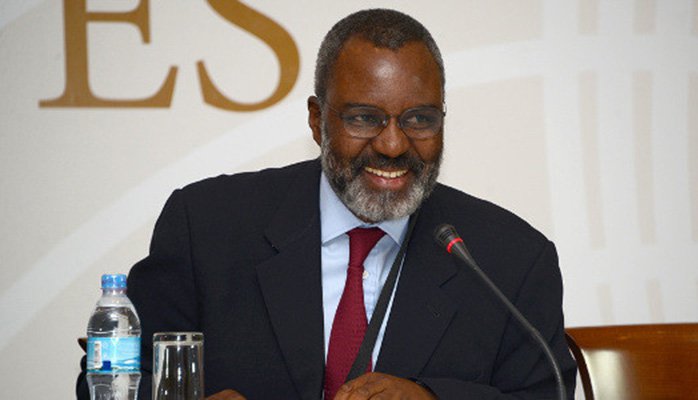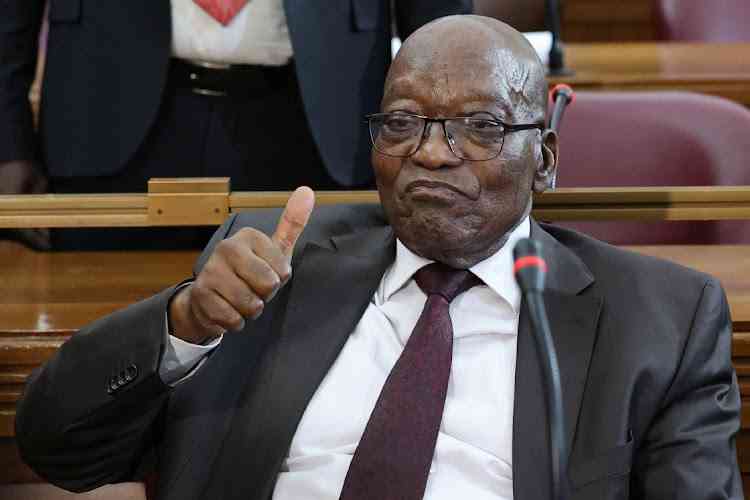
Our politics is yet to mature as much as it should have for a country that has gone through a lot of suffering due to bad governance. One wonders whether to blame our resilience or we are just exhausted of fighting and suffering.
Develop me: Tapiwa Gomo

Nearly a century of being colonised left us dehumanised. It took many years of fighting and the loss of lives to reclaim our space as an equal human race. Independence in 1980 delivered a promise that is yet to be realised.
Post-independence Zimbabwe has not been better. The purveyors of the nationalist discourse have not allowed space to openly argue that the colonial period was in most aspects better than the post-independence Zimbabwe. In pre-independence Zimbabwe, Africans could mobilise and fight for independence against the colonial masters, something that cannot happen today. Similarly, in pre-independence Zimbabwe, infrastructure was built and services were provided, albeit on a racial basis, but they were available. And today none exists.
Despite having gone through those enduring moments of fighting for freedom for 90 years and being let down by one of our own for 37 years, there is no evidence to suggest that we have learnt some lessons from the past.

Take for instance, if you thought the succession drama in Zanu PF is one of the main stumbling blocks to achieving democracy in Zimbabwe, then you may need to think again. There is a new heir apparent in town in the form of the MDC-T.
This new heir apparent, by whatever justification or entitlement, has assumed the position of being next in line after Zanu PF and should not be displaced by the wave of new political entrants. In fact, according to its doctrine of democracy no other opposition politician or political party must oppose Zanu PF unless they do so under a coalition led by their leader.
Those with a functioning memory will remember the events of March 2008, which shocked the nation, when the police and army chiefs declared that they would not allow anyone other than President Robert Mugabe, to take charge of the country.
- Chamisa under fire over US$120K donation
- Mavhunga puts DeMbare into Chibuku quarterfinals
- Pension funds bet on Cabora Bassa oilfields
- Councils defy govt fire tender directive
Keep Reading
And the MDC responded saying that amounted to a coup threat and today they also seem to have mastered the art of autocracy — courtesy of lessons from our uniformed chiefs.

They have couched their pervious argument under the fear of splitting the votes — using Mavambo/Kusile/Dawn political party leader Simba Makoni in 2008 elections as an example.
The reasoning of using the Makoni example to stifle new entrants and still claim that the elections were rigged is simply not cogent. It can only be either Makoni split the votes or they were rigged, not both.
Nonetheless, recent revelations suggest that both rigging and Makoni didn’t have much effect in the 2008 elections but reportedly the system altered the results when MDC-T leader, Morgan Tsvangirai, fled to Botswana. That is what stopped change from happening and not splitting of votes.
Their reasoning is not only flimsy, illogically and subtly autocratic for a movement that claims to be championing democratic change. The new entrants have endured the wrath of and the vile from the MDC-T supporters on social media than from Zanu PF, the same way Zanu PF treated them, which is why we asking for change — not change that is resistant to change.
We cannot run the risk of enduring such kind of autocracy from an opposition party and still entrust them with our votes to take us into a future they are yet to define for the people. In the absence of policies that address the current situation, the MDC-T must let those with fresh ideas fill the void as they voyuerously salivate over the Zanu PF succession fights.
Politics has changed over the years. The agenda now should not be limited to just removing Zanu PF, but to emphasise on how we will take the country forward post Zanu PF.
Coalition talks are focused on the former — removing Zanu PF — and indeed barren on the later. The MDC-T are under the illusion that they hold the centre in opposition politics oblivious of the simple fact that they were more popular over a decade ago than they are today. People still had jobs and were part of a strong labour movement. There was still an economy which bred a functioning business community.
The student movement was vibrant. There was a lot to lose and a lot to defend. And all these constituencies gave the MDC-T that oomph, but these have all weakened with time.
In addition, the agenda to remove Zanu PF, relevant as it may still be, it is no longer worth that much investment we see today for a party that is on an irreversible self-destruction mode. Let’s also not forget that Zanu PF has 18 years of experience on how to deal with the MDC-T and its leadership.
Time will soon remove Zanu PF from power. That agenda is no longer appealing. It is the future that is appealing. The absence of a well-articulated future from the opposition such as the MDC-T is what is prompting a new wave of political entrants.
It is what is sending Fadzayi Mahere, Alliance for the People’s Agenda leader Nkosana Moyo and the rest of other young people to the political ticket.
More are coming. They are not competing, but simply filling a void that lies glaring.
The MDC-T can continue their political discordance discounting the new entrants as fudge and yet cry-foul over splitting votes.











